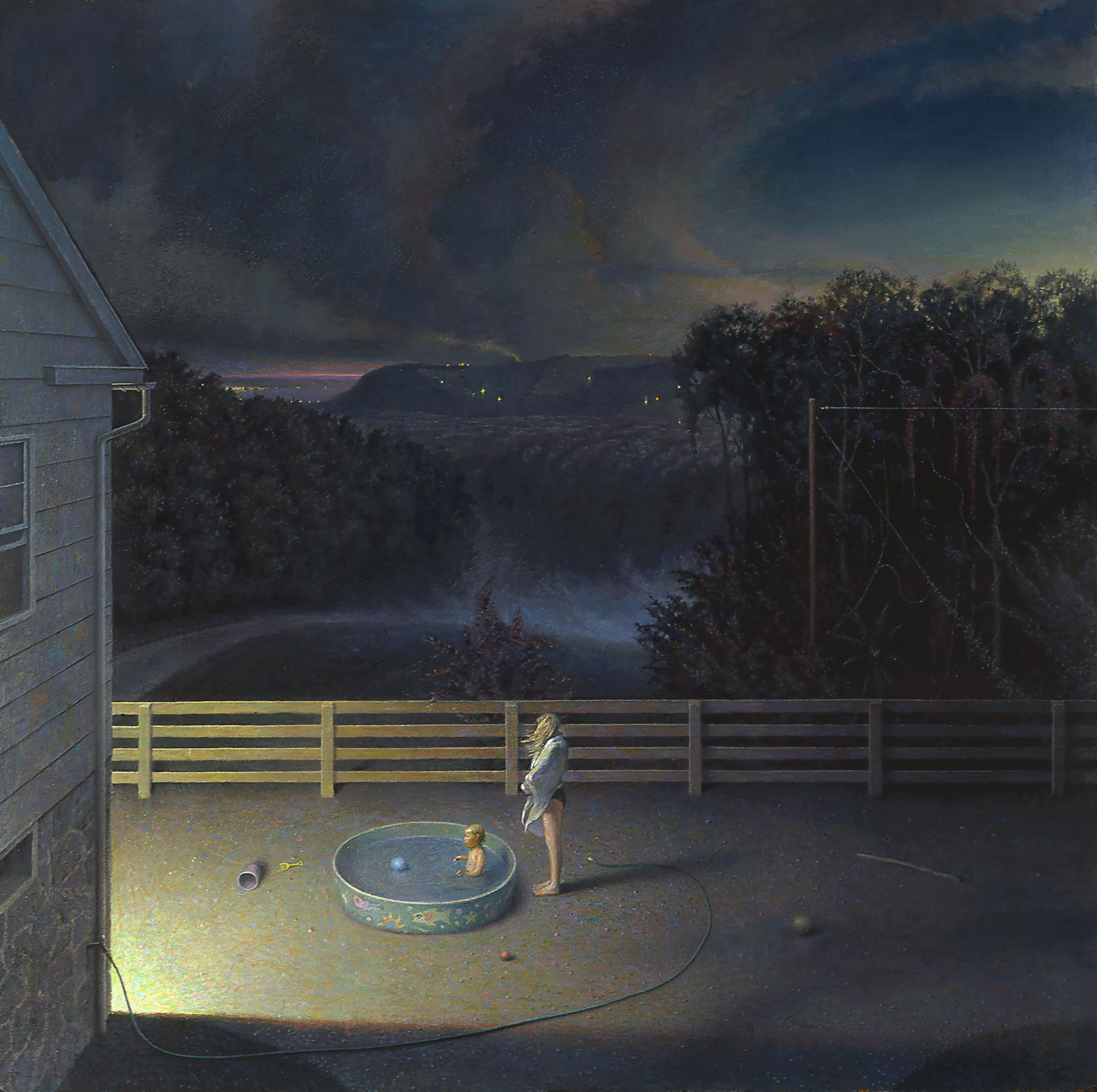#artintimeofcorona interview with Rob Evans
 This is one in a series of interviews with our customers to see how they are adapting to the COVID-19 world.
This is one in a series of interviews with our customers to see how they are adapting to the COVID-19 world.
Rob Evans lives in Wrightsville, PA and has been a customer since 2012. He is an artist and independent curator. He has been awarded numerous grants including a prestigious fellowship from the Pollock-Krasner Foundation.
This is his #artinthetimeofcorona story.

How was Wrightsville, PA affected by the COVID-19 virus? How have you been affected personally?
Like many small rural towns, Wrightsville has been impacted in a number of ways. While it is not seeing the wave of cases and hospitalizations experienced in the larger cities, it still has a number of documented cases and is a part of the greater lockdown implemented by the state in response to the pandemic. For the first several weeks we were in a complete shelter in place mode, with all non-essential businesses closed. Gradually, the state has eased back restrictions, with businesses slowly opening with social distancing and mask requirements.
The dynamic here in Pennsylvania has been challenging overall. Our terrific Democratic Governor, Tom Wolf, who I have known personally for decades before he had any political aspirations, also happens to govern a state that is very red in the rural regions. So his restrictions and response to this pandemic, although less strict than those recommended by the President’s own experts, have still created quite an outcry from Republican citizens and state lawmakers, creating harsh divisions (even among family and friends) between those arguing for a more careful reopening and those rushing to get back to normal. The already deep political chasm seems to be widening, creating a great deal of tension, mistrust and anger which often boils up on social media. I worry that some of these wounds may never heal.
Personally, the pandemic has had a limited impact. We live on a large self-sufficient farm property with solar panels, a garden, and studio space in a renovated barn on our property. My wife, Renee, and I are both self-employed artists and work from home, so in many ways our lives have remained the same. Our ability to make art has not been diminished, however what has changed dramatically is our ability to sell it, with galleries, museums and other arts venues closed. Even selling online often requires an eventual studio visit to see the work in person or to pick it up, which, during the lockdown, was not feasible.
Do you have a daily routine that keeps you grounded these days?
Actually, as self-employed artists, our life is relatively free of daily routines. Each day, the projects we work on, whether art related or personal, revolves around specific deadlines, the weather and our personal motivation rather than specific routines. Whether it is working in the studio painting, or on curatorial projects, marketing, social media, framing, gardening, mowing, upkeep and maintenance on our farm property, renovation projects, etc. there is always something to do and they tend to get taken care of in a free form manner. Being able to work in this way, always having something to focus on, has helped keep us grounded through this and other challenging times.
Are you reading, cooking, streaming, or doing any activity that is helping you cope?
Interestingly, one of the activities that has taken center stage in our spare time, has been playing croquet. Our son and his girlfriend, who live in NYC, are staying with us temporarily while things are shut down there. Our daughter and her boyfriend also live close by. Although we rarely ever played in the past, we pulled out an old croquet set from the barn and set it up, and have enjoyed having regular family tournaments here as a way to escape the craziness of our troubled world, get away from our phones and computer screens, and engage with each other in a real rather than virtual way.
With museums and galleries closed, are you viewing art on line? If so, what has inspired you?
A number of museums and galleries have been featuring virtual museum tours and artist studio tours which I have enjoyed viewing. In fact, my studio was featured recently by the Demuth Museum, here in Lancaster, PA, as part of a studio visit series they sponsored during the pandemic. My daughter helped film and edit the tour which also featured one of my recent curatorial projects (you will see many Metropolitan picture frames in the tour!). Here’s a link to the film on YouTube.
How do you market your work? How are you adapting during this time?
Two decades ago, I left all commercial representation behind, including prominent galleries in NYC and Washington, D.C., and began self-representation. I created a gallery space in our renovated barn where I hold regular open studios. I maintain a website with a private portal for collectors to view my available work. I purchased a large format printer which enables me to create archival reproductions of my work, allowing me to sell to a wider market including those who can’t afford an original. To keep my work visible, I exhibit primarily in non-profit art spaces, university galleries and museums.
As a way to insulate myself from the ups and downs of the art market I have tried to form multiple income streams beyond those mentioned above, including book covers for prominent authors, art consulting, paid lectures, jurying exhibits, etc. We also utilize our renovated barn as a B&B and conference room rental (which also brings patrons into the gallery space there) and have solar panels on the roof which generates income. As an independent curator I have organized museum exhibits and published catalogs which also generate revenue. All of this has helped keep us financially afloat through tough times. This pandemic has been a little different, since many of the income streams require personal interaction which is now limited or public spaces which are temporarily closed. While a number of potential exhibits and curatorial projects have had to be put on hold, the self-sufficiency of our property and solar income has helped us get by temporarily until things gradually reopen and get back to some semblance of normalcy.
if you could look into a crystal ball how do you see the art world changing after the pandemic? Are there any positive changes you can foresee?
I do believe the art world will survive all this – however some of the less prepared or financially challenged galleries and art spaces may well struggle to stay open. What I do foresee coming from all this will likely be a greater self-sufficiency among artists. I think many will be forced to discover ways to become less reliant on dealers or galleries during this extended shutdown, and will probably continue to move in that direction. I hope that one positive change that will occur and last is the comradery that has grown within the community of artists – a sense of working together and looking out for each other. This pandemic emphasizes the fragility of our profession, as well as our human frailty, and underscores the importance of art and a tightly knit arts community in these challenging times.
